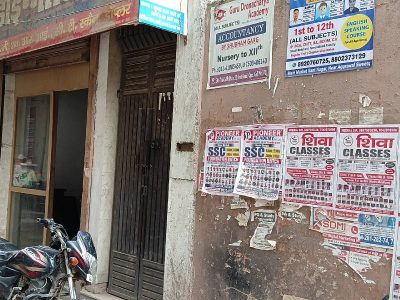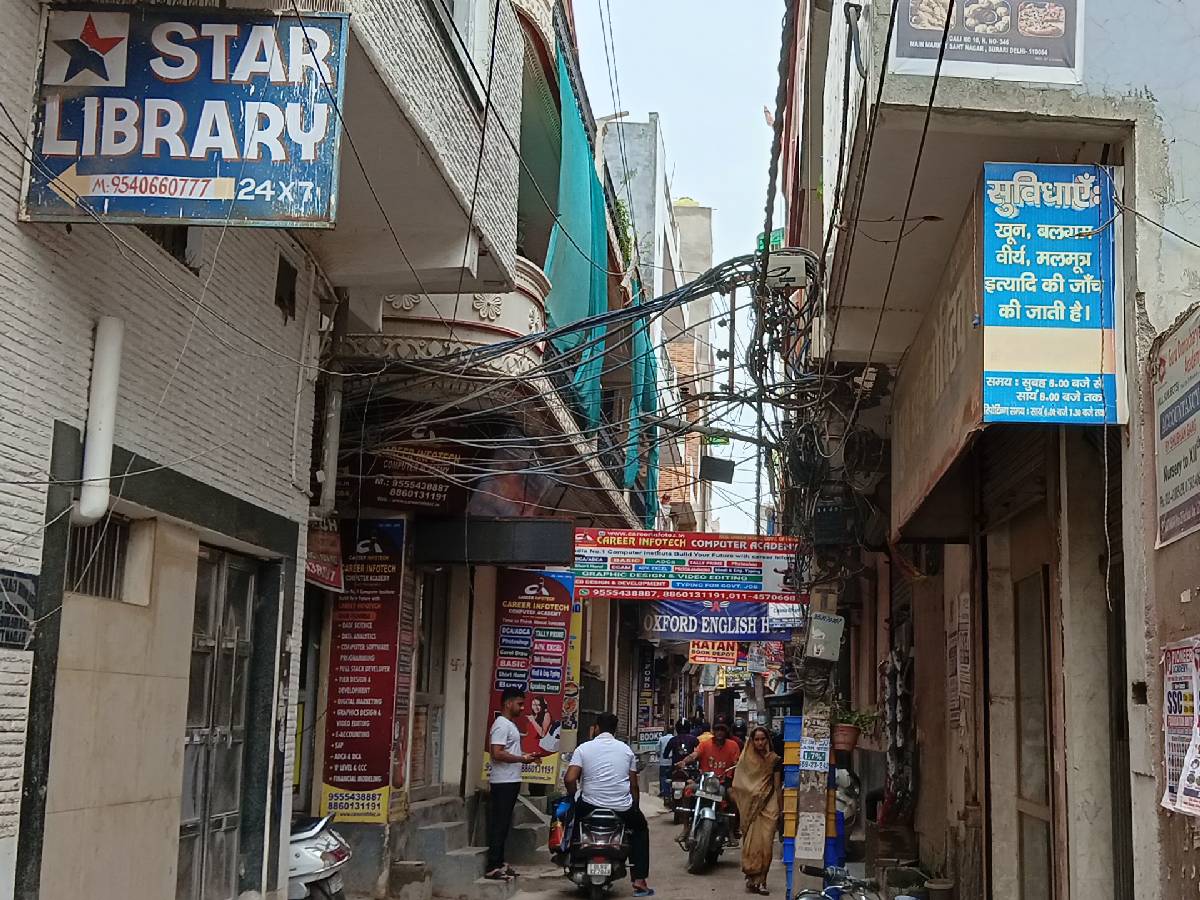Delhi: Walking inside the narrow lanes of Burari’s Sant Nagar, one is greeted by a three-storeyed building graced by a grocery store and a diagnostic centre on the ground floor. The sight in itself points to a usual day in the life of a common resident of the national capital. However, what sets it apart is the fact that it is the same building that witnessed the deaths of the 11 members of the Chundawat family in 2018.
Presently, the building sees daily inflow of customers to the grocery store which the family living on the ground floor runs. The shop in itself is not extraordinary, stocked with the usual household items such as daily essentials, packeted snacks, packets of a variety of breads, and other such items.
The building has provided shelter and a living to Manoj Singh and his wife, Krishna for the past four years.
According to Krishna, the family had shifted to Burari in 2020, two years after the tragedy that shook the entire country.
“Earlier, we were staying in Bhajanpura in North East Delhi. [We shifted] since the connectivity is much better here and also due to other concerns,” she said.
Presently, the duo resides in the building with three daughters. All three of them alongside their parents help each other out and run the grocery store. According to the family, the tragedy has no hold over them.
“It was strange initially but in about a few months’ time, things returned to normal. It did not feel otherworldly or even like something tragic had happened here two years ago. It just felt like a usual house. However, people would come to visit and see the house every other day but now, interest has waned a bit,” said Krishna.
Also Read: Paharganj Files: Five ‘suicides’ in four months
On the other hand, the mother of the three children added that shifting to the area had also helped in running the diagnostic centre.
“My husband (Manoj Singh) runs the diagnostic centre and we have been running it for almost a decade. It made sense to us later to shift to Burari to run it better. Otherwise, there was a lot of travel involved. We still have the Bhajanpura house with us and this one is on rent,” she said.
The rent rates for the house are still low. But most neighbours have started easing up to the idea of people residing inside, even though a sense of unease still lingers. A keymaker stationed at the mouth of the alley pointed towards the building and said, “I do not talk to them. I mostly try to stay away.”
However, the unease has not fazed Krishna or her family since they believe that their neighbours’ apprehensions are all unfounded.
Apart from Krishna’s family, the first and second floors are occupied by the Alis, who have maintained the house since the death of the Chundawat family. However, the family refused to speak when reached out.
A neighbour who wanted to remain anonymous said, “They (Alis) are tired of entertaining others because after the death many people would come to see the house where the tragedy happened. It went on for around four years. Initially, we thought that the new-found interest of the people in us would fix the state of our locality and also, Burari, but nothing of that sort happened. The roads are now more broken than they ever were. There are holes in place of roads in Burari.”

Earlier, on the night of June 30, 2018, the Chundawat family were found dead, with all of them apart from the oldest member, found hanging from the ceiling fan in the hall.
The oldest to die was Narayani Devi, 77, the family’s matriarch, who was found strangulated on the bed. The other 10 were Lalit, 45; his elder brother Bhavnesh Singh, 50; their respective wives, Tina, 42 and Savita, 48; children Neetu, 25, Monu alias Maneka, 23, Dhruv alias Dushyant, 15, and Shivam, 15; their sister Pratibha alias Baby, 48, and her daughter Priyanka, 33.
According to diaries found in the house, it was alleged that the deaths had occurred owing to the performance of a ritual to satisfy the gods, which was spearheaded by Lalit. The family thought, after continuous coaxing from him, that he was channeling the spirit of his late father, Bhopal Singh.
Consequently, the 11 deceased were found on the first floor. The police ruled that the deaths were caused by a condition of shared psychosis.





